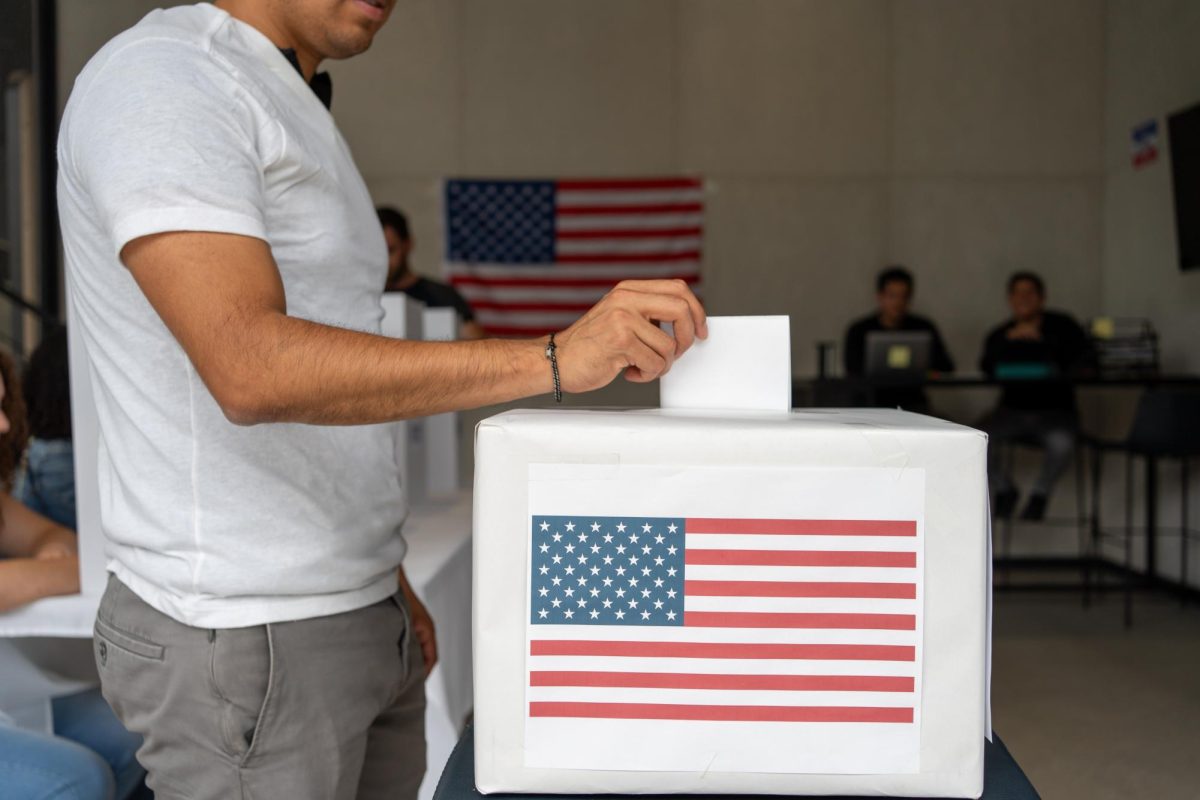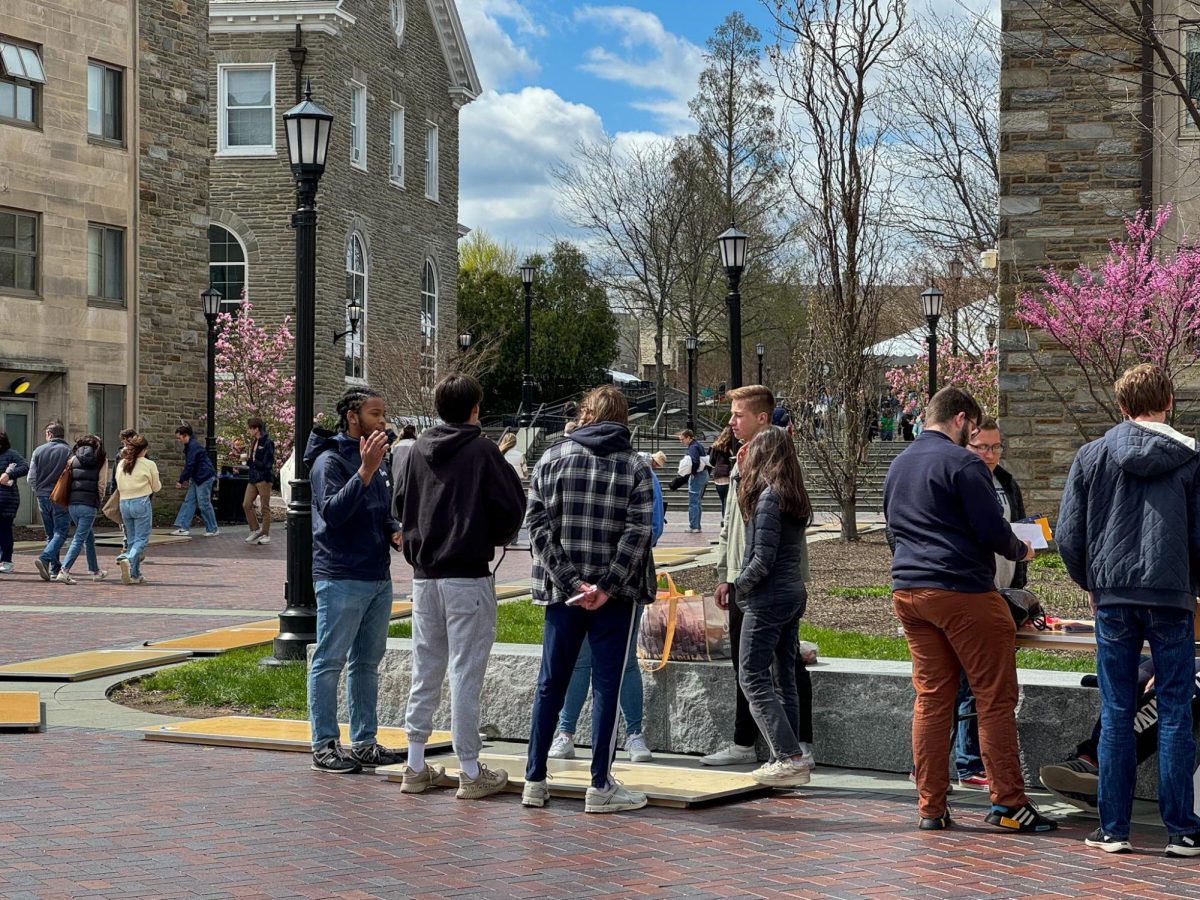On Wednesday, Oct. 23., Let’s Vote ‘Nova sponsored a voter information session held in the Connelly Center. The event, focused on election security, featured James P. Allen, the Director of Election for Delaware County.
The event aimed to address growing concerns about the safety and integrity of the electoral process, especially as the upcoming election approaches.
Most of the conversation focused on how Delaware County is ensuring a safe and fair election process, highlighting both the technological measures and the human support involved.
With an election site being brought to Villanova’s campus for the first time this year, the community is coming together to emphasize the importance of student participation. The election center wants students to know that their votes not only matter but are also safe and secure.
Misinformation, especially in the media, about voting processes, security and results can be a significant barrier to voter participation. Allen addressed several key fallacies.
Misconceptions about voter fraud often center around absentee ballots, despite the strict security measures in place to prevent misuse and ensure authenticity. Each absentee ballot requires a verifiable ID and a signed application from a registered voter. A clear chain of custody follows, with rigorous signature reviews and bar-coded envelopes adding further layers of security against tampering or abuse.
Many people worry about the risk of individuals attempting to vote more than once. However, Allen addressed this concern, noting that it’s challenging enough to “get people to vote just once,” and that the extensive security measures in place effectively prevent duplicate voting.
Additionally, he acknowledged fears that poll workers might tamper with votes. To prevent this, there are multiple cameras in place and locks on ballot boxes. Allen debunked myths about previous elections, noting that in the pivotal swing state of Pennsylvania, the 2016 election was decided by just 44,000 votes and the 2020 election by 80,000 votes.
While these small margins can raise concerns, he argued that it would be illogical for such a significant number of votes to be miscounted or subject to fraud, especially given the stringent security measures in place. Furthermore, votes totaled during recounts typically differ by only a few from the original tally.
Allen was not involved with Delaware County elections in 2020, a year from which he hopes to learn and improve future processes. He expressed full confidence in the upcoming elections.
“We’ll do better, and here’s why: first, we don’t have social distancing anymore,” Allen said. “Second, we have much more familiarity with the systems. It was a perfect storm last time—a presidential election with higher turnout, all-new voting equipment, and 100,000 ballots returned by mail for the first time. It was bad. When issues arose at the start of the day, they didn’t have some of the testing procedures that we have now.”
Allen emphasized to the public that there are several contingency plans in place to ensure that everyone can still cast their votes, should something go wrong.
Overall, Delaware County’s approach to election security aims to build public confidence in the electoral process while maintaining the integrity of each vote.
Delaware County is actually looking at a decrease in mail in votes this election cycle. It has sent out roughly 95,000 to 105,000 absentee ballots and is expecting to receive roughly 78% of these back.
The Villanovan had the opportunity to speak with Dan Griffin, Director of Villanova’s partnership with Catholic Relief Services, about his commitment to working at the polls on Election Day this year.
He underwent a rigorous, three-hour training and an exam to be best equipped to serve at the polls. Griffin noted that his initial perception of election security was vastly different from reality.
“The level of security is impressive but not obvious,” he said. “I always thought of voting as little old ladies slowly scrolling through huge paper registers in a school gym, more like a bake sale than an auditable process, but after learning about the protocols used throughout the process – multiple assigned observers, redundant and transparent reporting, documented chain of custody, and procedural response to anomalies – I recognize the same scrutiny and security I’ve seen while handling sensitive information, criminal evidence, or bio-hazard samples.”
Griffin explained that while the public sees a welcoming, user-friendly face of the voting process, the reality behind the scenes is much more complex.
“Few people see…the entire process that involves seals, cages, lights and cameras in a setting that more resembles a correctional facility than a church lobby or school gym,” he said.
With this being the first time voting in a quadrennial election for many Villanova students and the first time a polling place has been brought directly to Villanova’s campus, Griffin shared impactful advice, encouraging students to turn out to the polls.
“In the end, not exercising your right to vote has the same impact as not having it,” he said. “It is your voice, your country, your future. Vote like it.”








